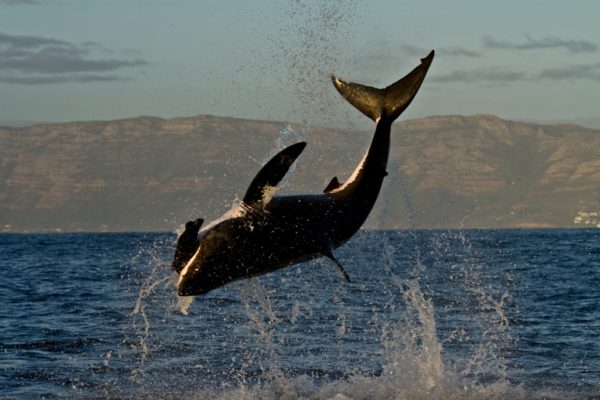Trinity researchers are among a group of biologists who have discovered that basking sharks – hundreds of which inhabit the waters around the shores of Ireland – can jump as fast and as high out of the water as the great white shark.
A new study, recently published in leading international journal Biology Letters, has shattered the basking shark’s previous reputation for being slow and languid as it scours the sea for plankton.
Basking sharks are the second largest fish in the world, reaching lengths of up to 10 metres, and feed on plankton and tiny invertebrates in the water.
The project was conducted by a collaborative group, consisting of biologists from Queen’s University Belfast, University of Roehampton, University of Cape Town, the Irish Basking Shark Study Group and the South African Institute for Aquatic Biodiversity, as well as several researchers from Trinity.
In a press statement, Dr Nick Payne, an assistant professor in zoology at Trinity and the co-author of the study, said: “The impressive turn of speed that we found basking sharks exhibit shows how much we are yet to learn about marine animals – even the largest, most conspicuous species have surprises in store, if we’re willing to look.”
Dr Jonathan Houghton, a senior lecturer in marine biology at Queen’s University Belfast, said: “This finding does not mean that basking sharks are secretly fierce predators tearing round at high speed; they are still gentle giants munching away happily on zooplankton. It simply shows there is far more to these sharks than the huge swimming sieves we are so familiar with. It’s a bit like discovering cows are as fast as wolves (when you’re not looking).”
The research team used video analysis to estimate the vertical swimming speeds of the sharks at the moment at which they left the water. They also attached a data recording device to one large basking shark to measure its speed and movement, and also to store video footage. The basking shark videos were recorded in 2015 at Malin Head, Ireland.
At one point, in just over nine seconds, the basking shark accelerated from a depth of 28 metres under the water to a height of 1.2 metres above the surface. To achieve this breach, the basking shark attained a top speed of approximately 5.1 metres per second. This is more than twice as fast as the average competitor in the Olympic men’s 50m freestyle swim.







